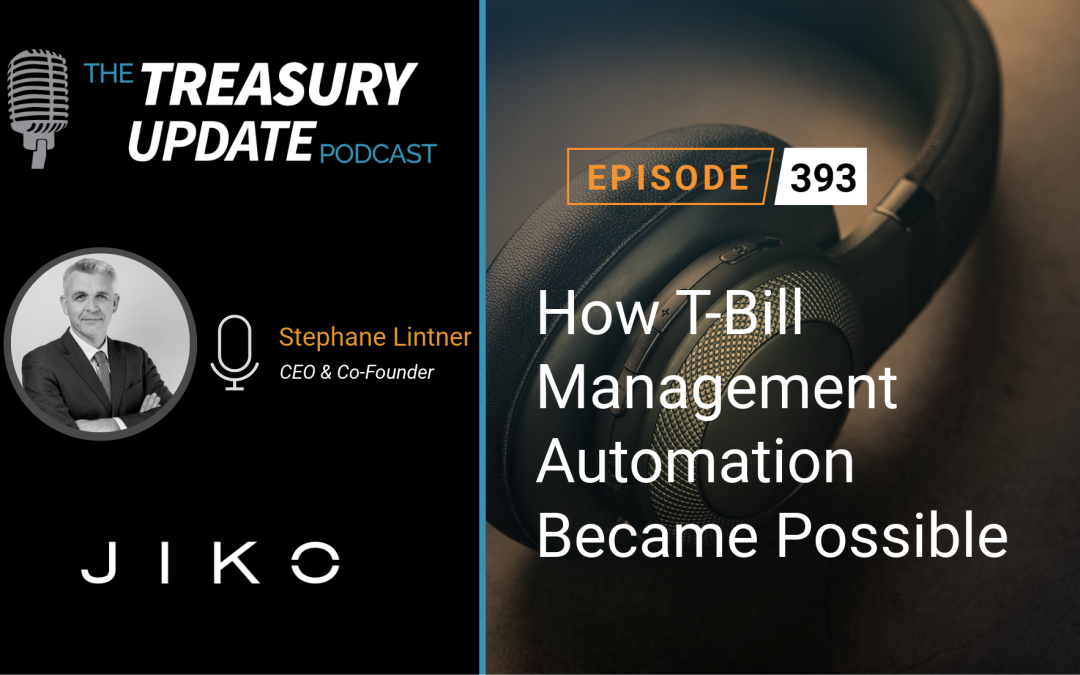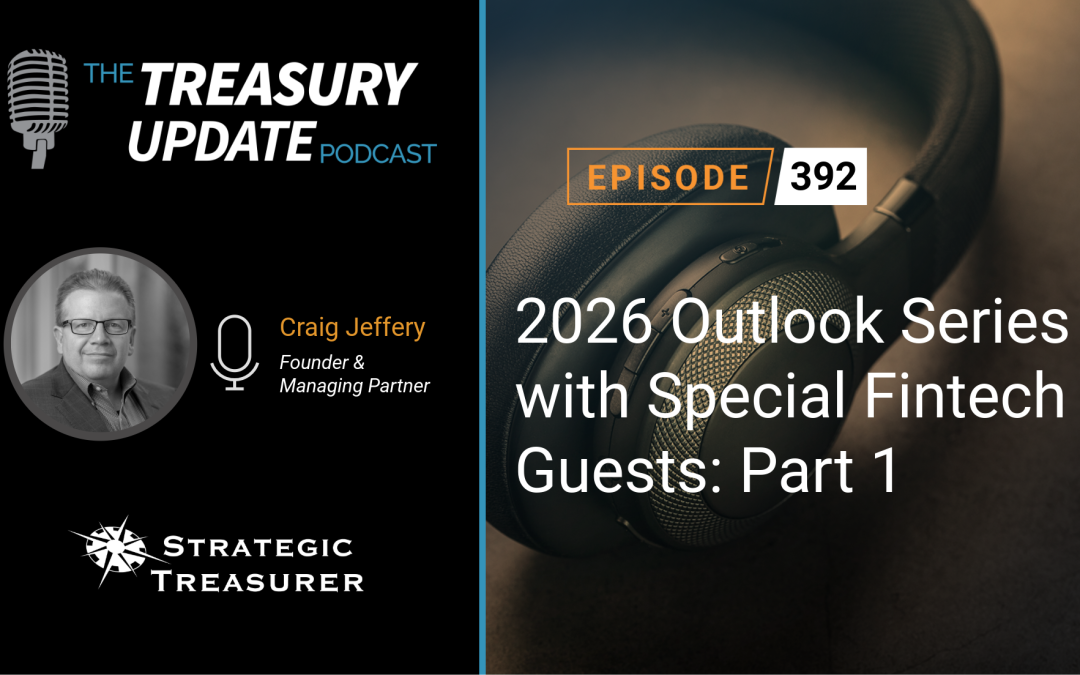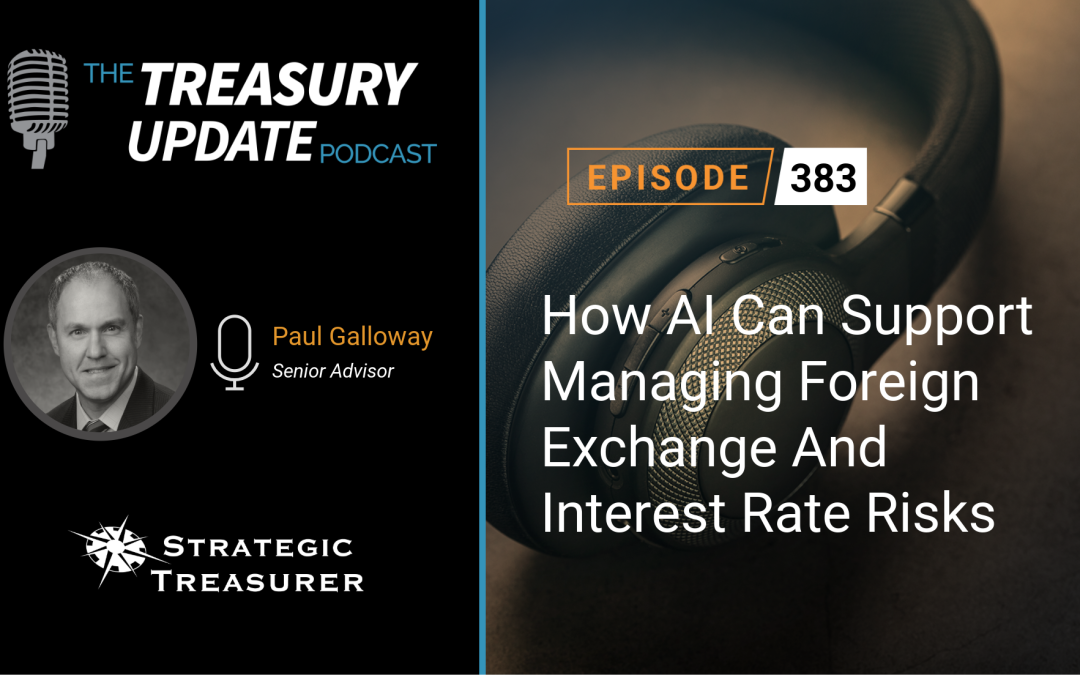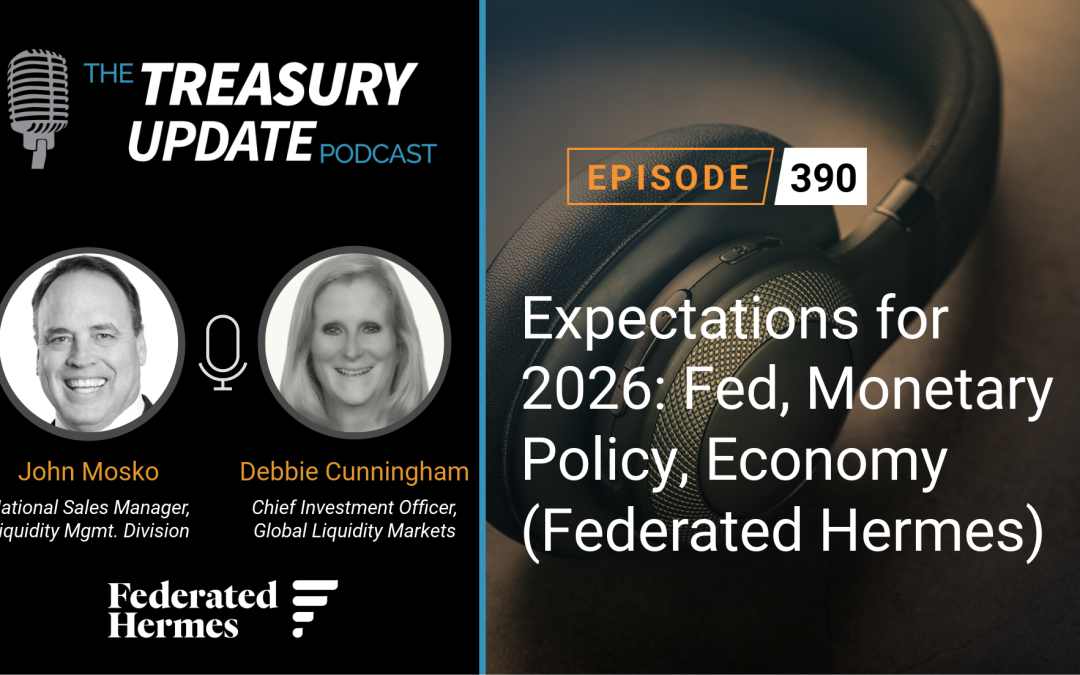
by Brian Weeks | Jan 12, 2026 | Podcast
In this episode, Craig Jeffery talks with Stephan Lintner of Jiko about the transformation of T-bill investing. They explore how risk, technology, and market structure have converged to enable real-time liquidity, seamless automation, and direct access to short-term government securities, all without sacrificing control.

by Brian Weeks | Jan 5, 2026 | 2026 Outlook Series, Podcast
This episode kicks off our 2026 Outlook podcast series. In this episode, Craig Jeffery speaks with Stephane Lintner of Jiko, Michel D’Abranches of Monkey, and Leo Gil of Bottomline to share fintech perspectives on 2026 predictions, including AI adoption, stablecoins, payment fraud, liquidity strategies, and the rising role of treasury in procurement and risk management.

by Brian Weeks | Dec 29, 2025 | Podcast
In this episode, Paul Galloway covers the upcoming Nacha rule changes. He breaks down what’s required in 2026, including ACH monitoring, vendor validation, and fraud defense procedures. What steps should treasury teams take now to prepare and stay compliant? Tune in for practical guidance.

by Brian Weeks | Dec 22, 2025 | Podcast
In this episode, Craig Jeffery speaks with Debbie Cunningham and John Mosko of Federated Hermes about expectations for 2026. They cover interest rate policy, Fed leadership changes, inflation pressure, and investment strategy. How should treasury teams respond to a slow-growth environment and policy uncertainty? Listen in for insight.

by Brian Weeks | Dec 15, 2025 | Podcast
In this episode, Craig Jeffery explores how behavioral finance applies to treasury. He unpacks key biases like overconfidence, anchoring, and loss aversion and how these influence forecasting, investing, and risk management. How can treasurers spot biases and build better frameworks for decision making? Tune in to find out.





